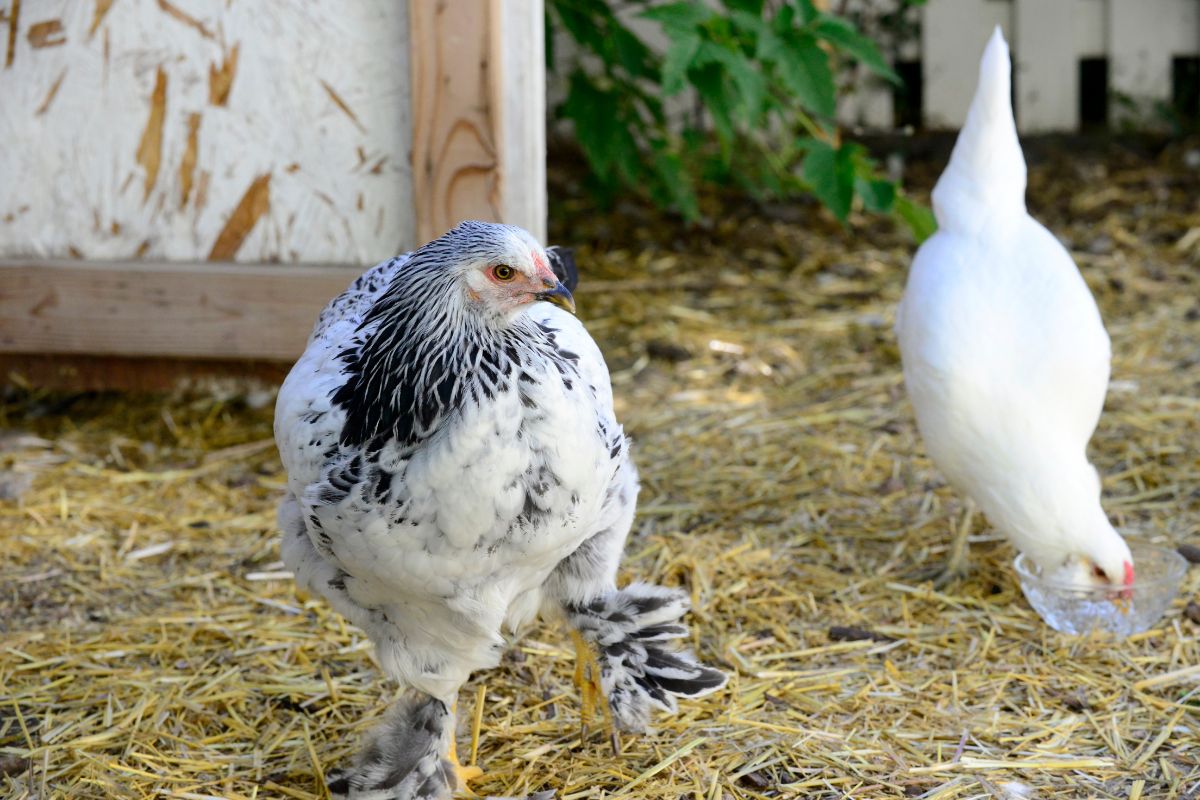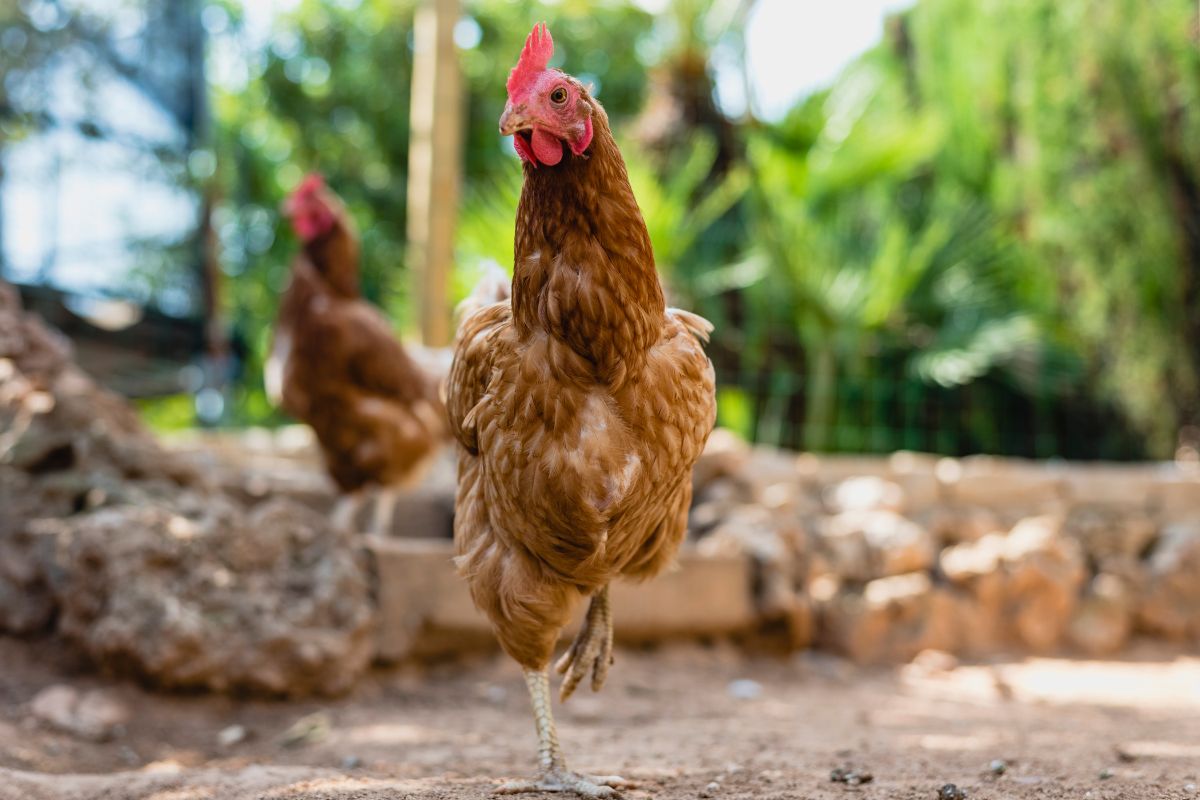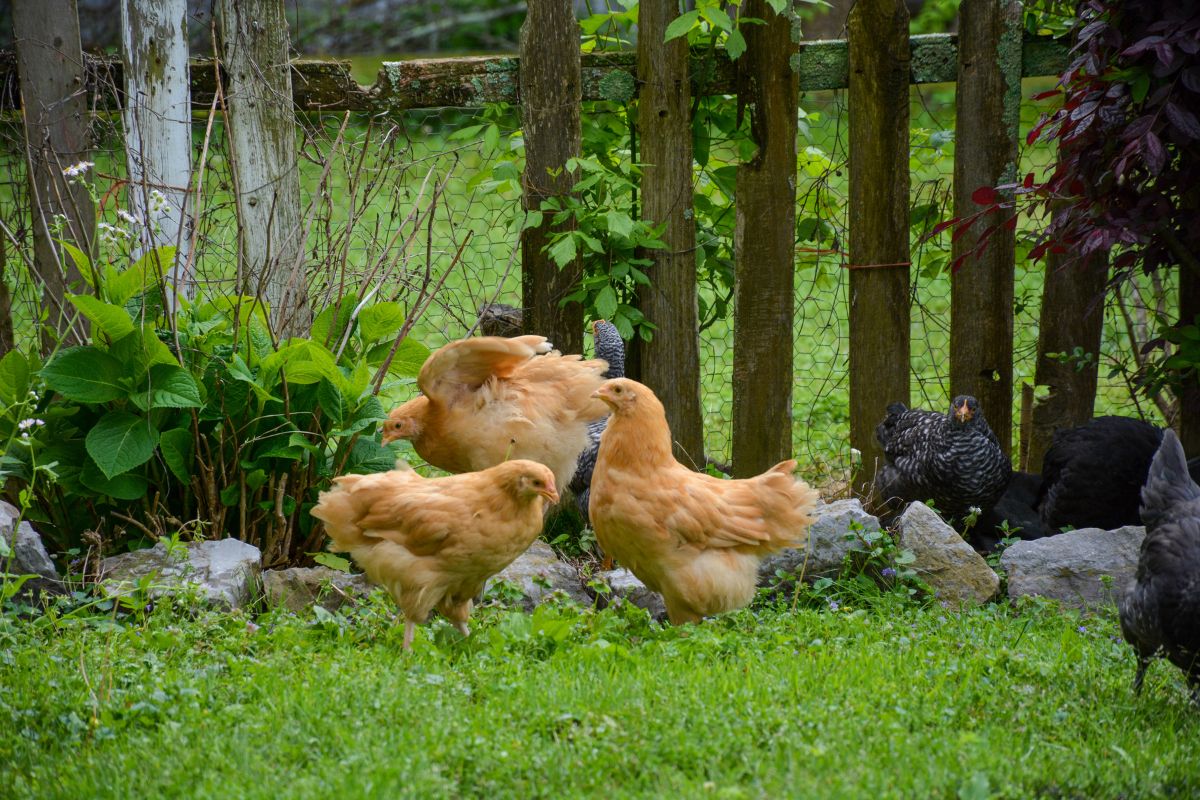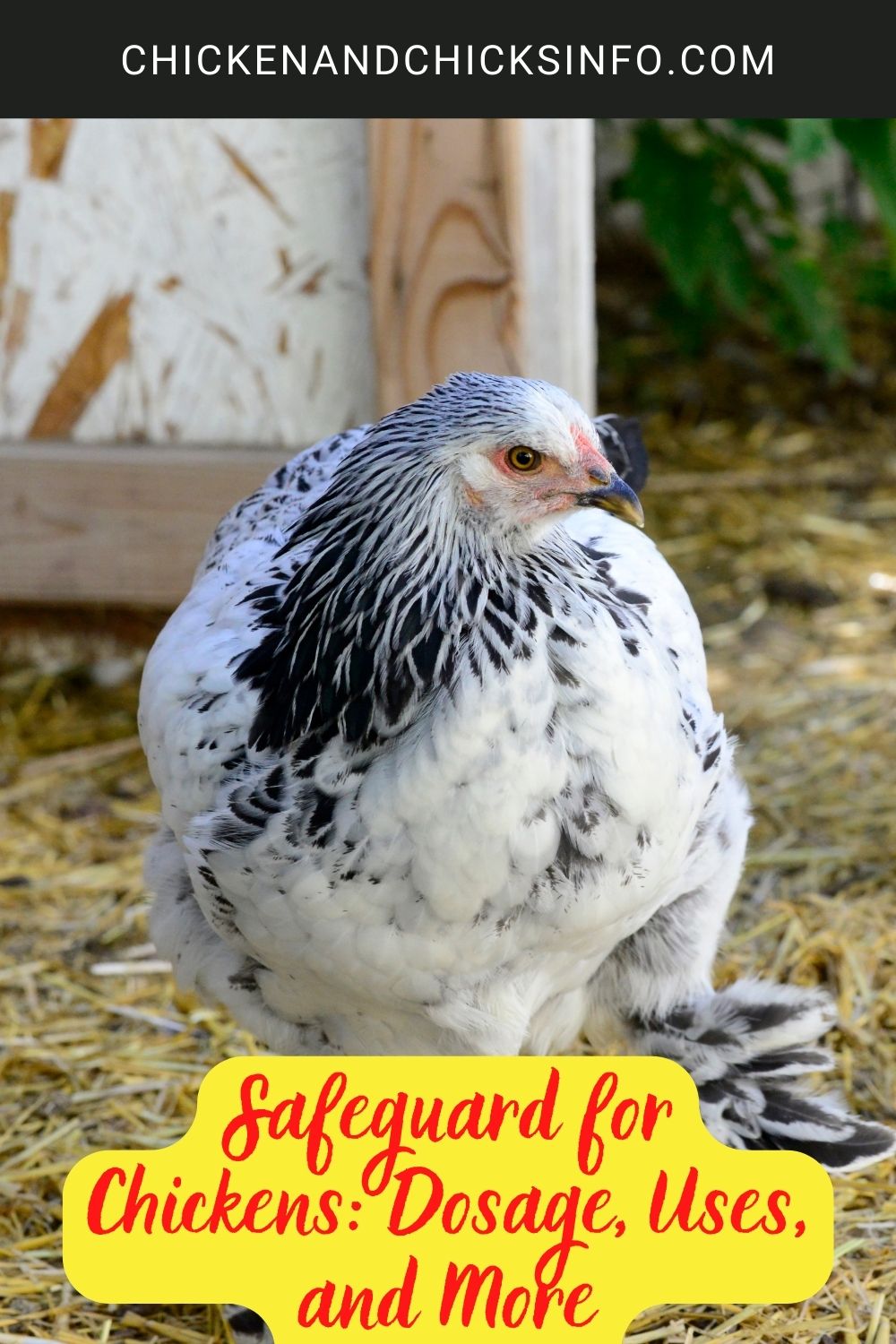
This post may contain affiliate links. Please read my disclosure for more info.
Safeguard, or Safe-Guard is a brand name for Fenbendazole, which is a drug used to rid cattle and other animals of most roundworms, tapeworms, and gapeworms.
A lot of backyard chicken owners use Safeguard to deworm their flock. Most owners, at least the ones I’ve spoken to say that Safeguard is the most effective deworming treatment they’ve used.
If you’re looking for an effective way to deworm your chickens - or more information about Safe-Guard - I’ve done my best to cover everything you need to know in this article.
Jump to:
Can You Use Safeguard on Chickens?
Safe-Guard is safe for use with chickens. There have been numerous clinical studies, as detailed on Drugs.com, and it’s proven to be effective at killing worms while being safe to use.
There are some capillary worms that it does not kill. If you do not know what type of worms your flock has, that’s something an avian vet can assist you with.
Is Fenbendazole Safe for Chickens?

Fenbendazole is benzimidazole anthelmintic, it’s the name of the drug that is used to kill worms.
Safeguard is just one of the brand names that sell Fenbendazole as a deworming product. So, they are one and the same thing.
That means it’s perfectly safe to use as long as you’re using the product as directed.
Safe-Guard Does for Chickens
The directions recommend administering Safeguard orally via their drinking water. Alternatively, you can give it directly to your chickens with some food. Whatever works for you, as long as you know they're getting the right amount.
The recommended dose is for chickens when added to water is 1mg/kg for 5 days in a row.
Talking with owners that have used Safeguard, they tell me they use a pea-sized amount. Some owners, such as the one in the video below, use two pea-sized amounts for confirmed cases of roundworms.
Here is a backyard chicken owner talking about how effective Safeguard was for her and how much she gives her flock:
Related - Want to use Valbazen for deworming? Read this post.
Where to Buy Safe-Guard for Your Chickens?
You can pick it up on Amazon via the links below:

You can check the latest price on for this Safeguard dewormer on Amazon by clicking here.
The good thing about buying from Amazon is that you can read the reviews and questions from people that have already used products, as well as asking questions of your own.
You’ll see from the reviews that people use Safe-Guard to kill various types of worms in cattle, such as goats and horses, as well as pets like dogs and chickens.
How Can I Tell If My Chicken Has Worms?

The two main ways most owners know for sure that their flock has worms is either through seeing worms in their poop (as in the video above) or through a poop test by a veterinarian.
Some other symptoms that may indicate your flock has worms include:
- Pale or off-color combs
- Loss of weight and/or appetite
- Irregular egg production
- General lethargic behavior
- Blood in their poop
I’m sure you’d have spotted any of the above symptoms in your flock. It’s distressing to see our chicks looking sick, and if you haven’t been worming them as a preventative measure it’s a good time to do so.
Most vets recommend testing and treating for worms every 3 months or so. Doing this will help prevent worms from getting into your flock and spreading, making treatment a lot easier should an outbreak arise.
Is There an Egg Withdrawal Period After Using Safeguard?
The withdrawal period is the time required after the administration of a medicine before you can eat eggs being laid by the hens being treated.
It’s like a cool-off period in case the medicine has an effect on the eggs, or in the case of cattle the meat, of the animals with medicine in their system.
I often hear chicken owners say there is a 14-day withdrawal period, as this is the case for some other medications.
According to this Panacur Aquasol official release, there is no withdrawal period for eggs laid by hens being treated with Fenbendazole. Panacur is another brand of Fenbendazole, just like Safeguard.
Can You Use Safeguard With Baby Chicks?
I’ve heard a few answers ranging from 10 to 20 weeks as being the youngest age a chick can be dewormed.
In the video I shared above, the woman said 4 months was the earliest she recommends using Safe-Gaurd with chicks so that’s 16 weeks old.
If you have an avian vet or a vet in your area you know has experience with chickens and farmyard animals, I’d pick up the phone and ask them for their expert opinion.
It doesn’t do any harm to ask!
In Summary
Worms do not have to be a problem in your flock. It’s easy to treat worms in chickens, products like Safe-Guard are very good at what they do - killing various types of worms.
You just need to be sure you're using the right product.
Application is easy too, just add some to their drinking water. Or, if you really want to be sure they’re getting a dose just add it to their favorite treat and it’ll get gobbled up in a hurry.
There’s truth in the old saying, “prevention is the best cure”. Pick up a bottle of Safeguard, mark a date in your calendar every 3-4 months, and give your flock a dose to keep them healthy and worm-free.





